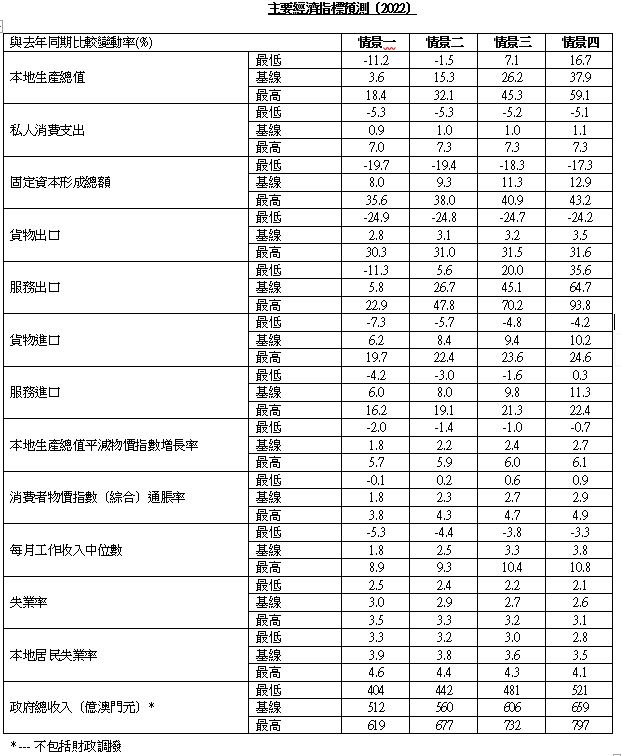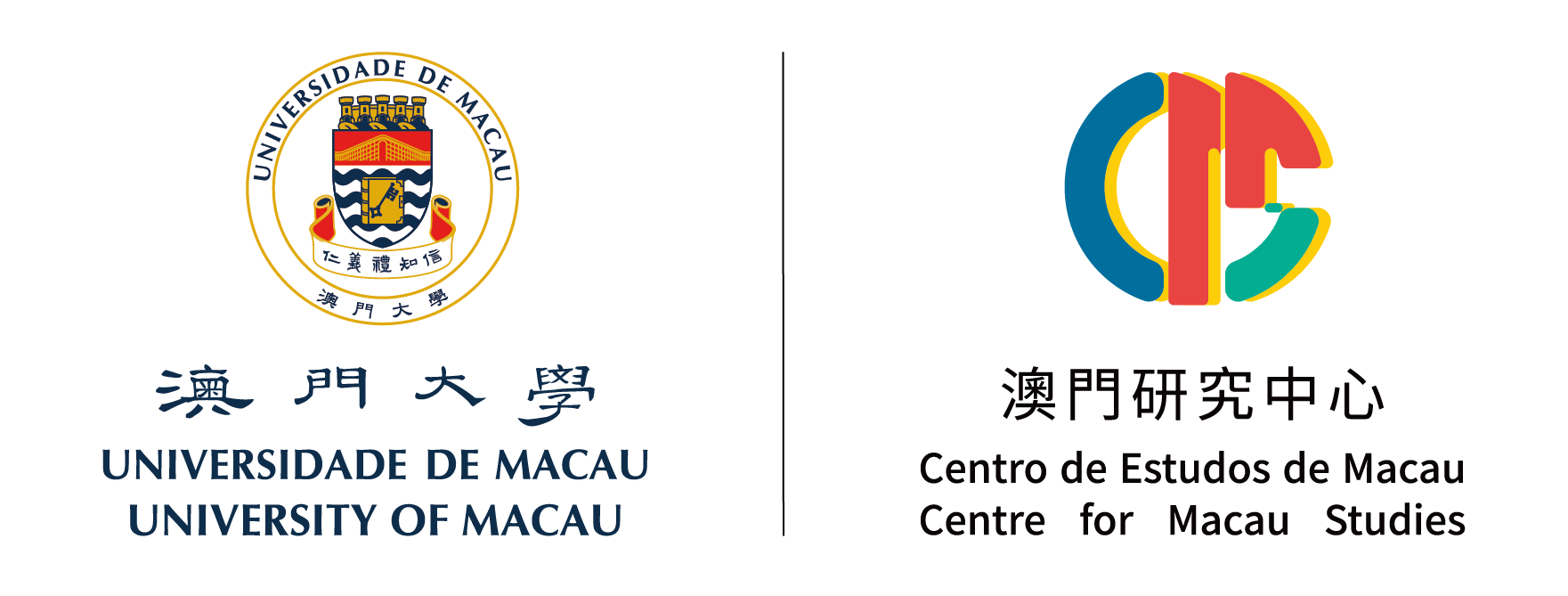Centre for Macau Studies (CMS) and Department of Economics today (26 January) released the 2022 Macroeconomic Forecast for Macao, estimating that the economy will grow between 3.6% and 37.9% in 2022; exports of services will grow between 5.8% and 64.7%; and the final revenue of the Macao SAR government will remain at around MOP 51.2 billion to MOP 65.9 billion.
In 2021, COVID-19 was still not fully under control globally. The total number of visitors to Macao was 7.71 million, only 19.6% of the figure in 2019. In the first three quarters of 2021, although the overall economy rebounded from the lowest in the corresponding period of 2020, the growth was of a lacklustre speed. The year-on-year growth was only 27.5%. Compared with the same period in 2020, with GDP shrinking by 58.0%, the recovery was still far away. Amid the outbreak of the epidemic in Macao at the end of September and early October, the SAR government further tightened travel restrictions. As a result, the number of mainland visitors dropped substantially during the ‘Golden Week’ holiday period. Against this backdrop, UM’s CMS and Department of Economics have announced the 2022 Macao Macroeconomic Forecast, which is based on the Macroeconometric Structural Model of Macao. The results are as follows.
In view of the possible changes in the epidemic and government policies, the research team of the Macroeconometric Structural Model of Macao considered four different scenarios for the number of visitor arrivals in 2022, making allowance for different recovery speeds. The four scenarios are:
Scenario 1: 9.9 million visitor arrivals;
Scenario 2: 13.8 million visitor arrivals;
Scenario 3: 17.7 million visitor arrivals; and,
Scenario 4: 21.7 million visitor arrivals.
Based on the above four scenarios, the forecasts of major economic variables are as follows:
· The baseline forecast of Macao’s economic growths are 3.6%, 15.3%, 26.2%, and 37.9% respectively.
· The baseline forecast of growths in the exports of services are 5.8%, 26.7%, 45.1%, and 64.7% respectively.
· The baseline forecast of growths in private consumption expenditure are about 1% in all four scenarios.
· The baseline forecast of growths in total gross fixed capital formation are 8.0%, 9.3%, 11.3%, and 12.9% respectively.
· The inflation rate measured by GDP deflator or consumer price is 1.8% to 2.9%.
· The growth in median monthly employment earnings is 1.8% to 3.8%.
· Unemployment rate is projected to be between 2.6% to 3.0%. Excluding non-resident workers, the unemployment rate for residents is expected to be 3.5% to 3.9%.
· Government revenues (transfer from government reserve excluded) is expected to be between MOP 51.2 billion and MOP 65.9 billion.
Macao experienced a severe economic contraction in 2020, followed by a lacklustre recovery in 2021. The Macao SAR government has implemented various policies, especially for small and medium-sized enterprises, to support them through the crisis. However, enterprises are faced with a lack of demand, and without a steady source of visitors, they are not be able to generate a steady income. Therefore, the government still has to face the issue of how to speed up the vaccination process in Macao, so that tourism control measures can be relaxed as soon as possible and tourists can return.
About the Macroeconometric Structural Model of Macao
The Macroeconometric Structural Model of Macao is a quarterly simultaneous-equation econometric model which covers seven aspects of Macao’s economy: consumption, investment, the external sector, prices, government, the labour market, and the monetary sector. It includes 89 equations and 280 variables. Time series data start from the first quarter of 1998 and are updated once new data are available. Its results provide the community with a timely understanding of the state of Macao’s economy and support prudent decision-making. The model was founded by the late Prof Sir James Mirrlees, winner of the Nobel Prize in economic sciences and honorary doctor of social sciences of UM, as well as faculty members in the UM Department of Economics. Project members include Dr Chan Chi Shing, adjust lecturer in the CMS; Prof Ho Wai Hong, associate professor in the Department of Economics; and Prof Kwan Fung, assistant professor in the Department of Economics.




